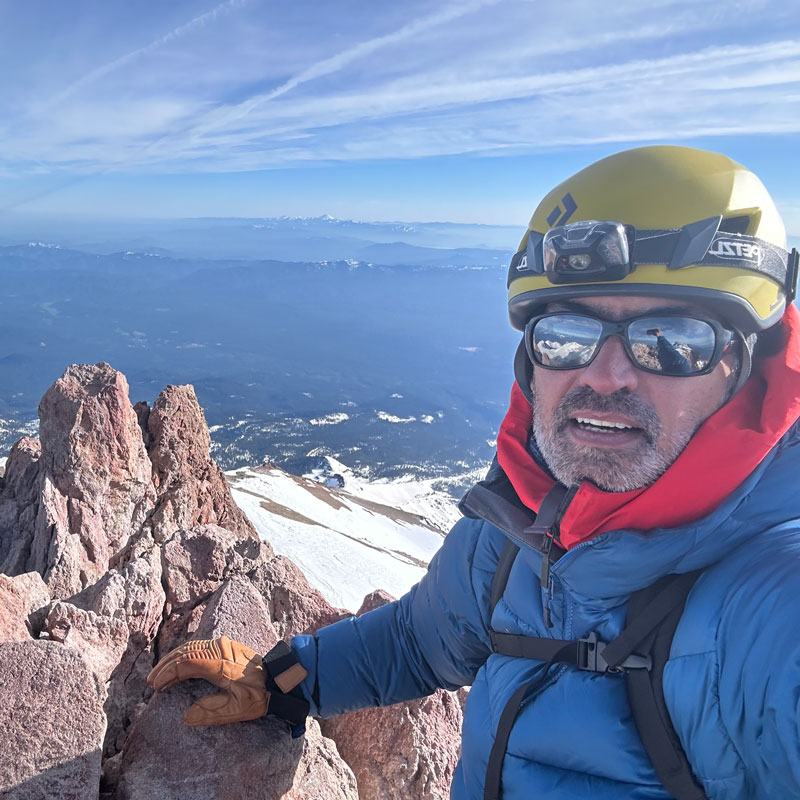Global Engagement Faculty Spotlight
August, 2023

Periklis Panousis
As part of our Global Engagement Strategy, we want to highlight our Global Community right here within the Department. It is an honor to get know Dr. Periklis Panousis. To learn more about the unique perspective he brings to our Department and our Global Community, read his interview below.
What is your current title and capacity within our Department?
Clinical Assistant Professor, Director of Anesthesia for Urologic Surgery
What are your academic and/or research interests?
I am interested in the cardiovascular effects of obstructive sleep apnea on patients undergoing general anesthesia and the effects of hypotension on patient outcomes.
I also would like to share that I’m working with Dr. Tabin from the Ophthalmology department here at Stanford to participate in their work in Nepal. I’m in the process of acquiring the Diploma in Mountain Medicine. I was asked if I could contribute with teaching anesthesia in rural hospitals in Nepal during my expeditions. I look forward to getting our Department involved in this effort. I’ll be in Nepal in April to trek to Everest Base Camp and climb Lobuche.
Where did you grow up?
Thessaloniki, Greece
https://www.britannica.com/place/Thessaloniki
https://en.wikipedia.org/wiki/Thessaloniki
How do you think your upbringing influenced your worldview? (culture, religion, geography, economics, other factors)?
I grew up in Greece and went to a tri-lingual international school. I then went to medical school in Germany. I came to the United States 15 years ago. My international experiences inspired me to engage in several medical mission trips across Africa and Asia. I am aware of the discrepancies between the medical systems and barriers patients face in access to healthcare. This has inspired me to be more involved in global health.
How is healthcare different in other countries where you have lived/visited/worked?
It is not possible for citizens of the European Union to not have health insistence. A major difference I notice is that mental health has higher priority in Europe, yet there are less drug and opioid prescriptions and less dependence.
How do you think we can improve the care of our patients in the USA?
By reducing the administrators’ influence on our practice, physicians become stronger advocates for the interests of our patients. Unnecessary administrative burdens and focus on financials can distract from the needs of patients.
How does a global perspective strengthen the care of patients?
You learn that less is more. Although there are many resources in the United States, it does not always lead to better outcomes for patients. Overuse and overtreatment also increase the costs of providing care.
How have your unique insights and experiences along your journey informed your practice?
I am grateful to have the resources I have at Stanford that allow me to provide the best care to my patients.
What has been your most challenging or surprising lesson learned when engaging with other cultures?
Everyone in the world has the same needs – food, water, shelter, healthcare and love. The only difference is the way people express it. We have more in common than what divides us.
What has been the most amazing thing you have seen while traveling to another country?
The sunrise above Anghor Wat in Cambodia. The sound of hyenas in Nigeria. The views from the summit of Mt. Shasta/California.
